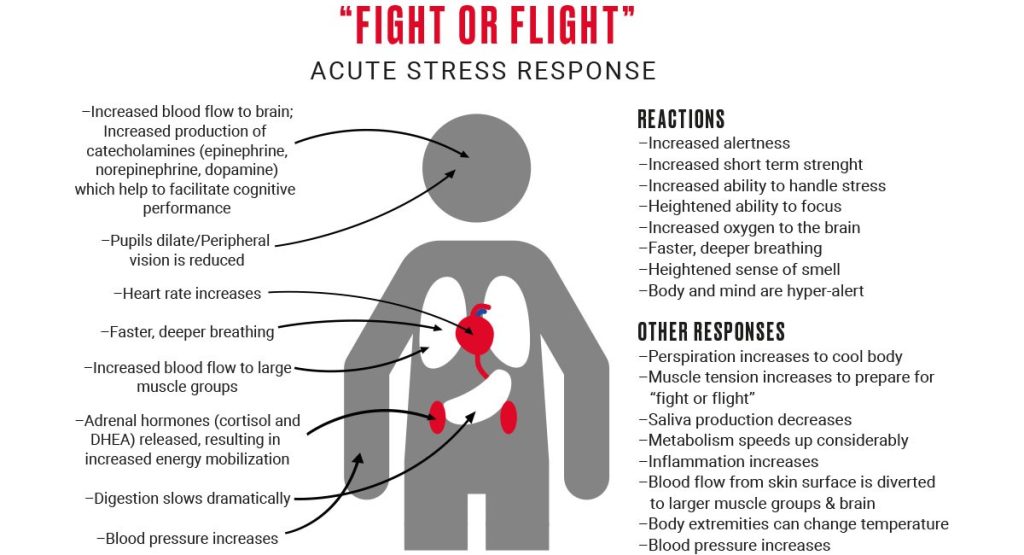The role of stress on recovery
Posted on April 5th, 2022 by Andries Lodder
One of the most important aspects when it comes to seeing results after training, is recovery. Some of the most well-known recovery methods include:
- Active recovery workouts
- Correct nutrition before and after workouts
- Enough rest days
If we all only focus on how well we recover from physical exercise, we may forget that both physical and mental stress plays a major role in total recovery and affects how soon we are able to exercise again.
We have all experienced stiffness after intense exercise, and we often think that we are ready to go again the second that stiffness is gone. There is however, that possibility that exercising at high intensities can take a toll on your body if you are experiencing high stress levels even if you don’t feel tired or sore physically.
When our bodies experience stress, your brain sends a signal through your autonomic nervous system to tell your body to either deal with the event or run away, the so-called fight or flight response. Our sympathetic nervous system then provides a burst of energy to deal with the event while our parasympathetic nervous system promotes the rest response to calm the body down. Psychological stress can cause physical changes in the body such as increasing blood pressure, heart and breathing rate.
These responses are useful when we are in actual danger but can cause issues when the physical danger is not real. Repeated activation of this stress response can lead to chronic stress with frequent illnesses, fatigue, sleeping issues, anxiety, and depression.
Exercise does have benefits with regards to stress. Tough workouts can be used to help reduce mental stress and take the mind off whatever is causing the stress. Feel good hormones released when exercising helps increase your mood and distract your mind from any stress.
On the other hand, exercise can also add to the stress and strain on your body. Even if your body is feeling physically fine, accumulative, and continuous high intensity exercise can add to the stress you are already experiencing. Continuing training at high levels when you are already stressed will lead to a decrease in recovery and will just increase stress levels even more after each session. Prolonged stress will decrease your tolerance for exercise which will lead to poor adaptation to training and poor performance.
Fitness and wellbeing are dependent on three things:
- Exercise
- Nutrition
- Rest & Recovery
If you are stressed about work, family and working out, your autonomic nervous system is in overdrive. This prolonged stress will lead to poor recovery and performance.
The three best ways to boost recovery are as follows:
- Exercise: Exercise is a great way to relieve stress. When training, your body uses the energy rush from the stress response to start breaking down stress hormones and release endorphins. Regular exercise also improves fitness and well-being which can also decrease stress. To gain maximum benefits and achieve fitness results, you must balance training with recovery.
- Sleep: Sleep quality is an indicator of stress and recovery. It is essential for recovery from exercise and daily stress as restorative functions like muscle growth, tissue repair and protein synthesis, all take place mostly during sleep.
Poor sleep can affect cognitive function, mood, and motivation. It can affect training directly through fatigue, or indirectly through increased anxiety levels. Poor sleep can also increase your overall risk of illness and injury. - Breathe: Deep breathing can help boost recovery. There are several breathing techniques to help trigger the relaxation response and relive stress, but these all take practice. Mindful breathing done for 10-20 minutes a day can help build resilience and reduce overall effects of stress in the body. This helps the body recover more effectively, achieve better results, and be better prepared for exercise.
Tweet
